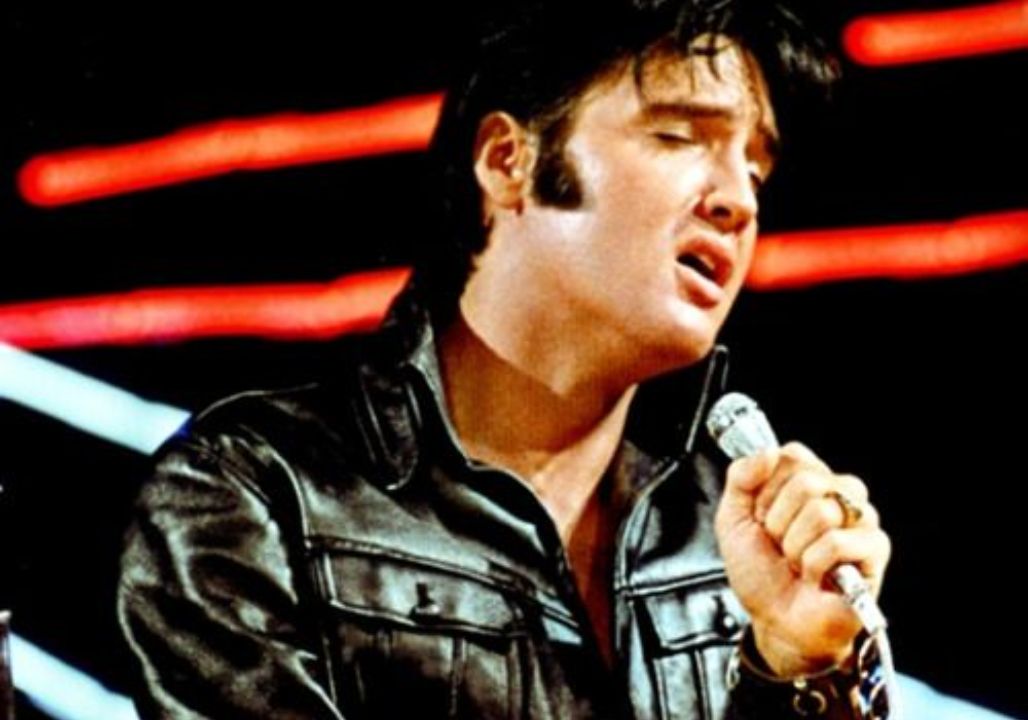
In the sweltering summer of 1977, Elvis Presley, once the embodiment of charisma and youthful vigor, was gearing up for another nationwide tour. To millions, he remained the undisputed King of Rock and Roll, a global icon who revolutionized music and popular culture. Yet beneath the shimmering spotlight and overwhelming adoration, Elvis was fighting a private battle that few were privy to—his own body failing him, a troubled mind, and an intensifying dependence on prescription drugs.
The stark contrast between the Elvis of the vibrant 1960s and the worn Elvis of 1977 was jarring. In 1968, audiences witnessed a man in his prime—slim, sharp, commanding every stage with electrifying magnetism. Less than ten years later, the world saw a performer burdened far beyond his years, physically and emotionally weighed down. This profound transformation left fans bewildered, sparking questions about how the world’s most celebrated entertainer could alter so drastically in such a brief span.
While Elvis’s penchant for rich, indulgent meals contributed to his deteriorating health, this was not the root of his demise. Like many artists subjected to relentless demands, Elvis leaned heavily on prescription medication as a coping strategy. Amphetamines sustained his early mornings, barbiturates soothed his restless nights, and gradually, he became his own pharmacist—crafting precise mixtures of drugs to regulate his energy, mood, and pain. By the early 1970s, his addiction had spiraled so deeply that functioning without these substances became nearly impossible.
So why didn’t Elvis just stop? The answer lay in the immense pressures he bore. Beyond maintaining his lavish lifestyle—luxury mansions, sleek cars, and private jets—he supported an entire entourage of staff, friends, and business associates. He was the financial anchor of a sprawling empire, and stepping away from the stage would have meant letting down countless dependents. Surrounded largely by “yes-men”, those who enabled rather than challenged him, Elvis encountered little opposition to his destructive habits. For most, refusing the King was simply unthinkable.
A pivotal figure in this tragic saga was Elvis’s personal physician, Dr. George Nichopoulos, affectionately dubbed “Dr. Nick.” Whether through prescriptions or direct provision, Dr. Nick ensured that Elvis’s medicine cabinet was never empty. What began as a desperate means to cope with the crushing demands of stardom morphed into a drug dependency that would ultimately prove fatal.
On August 16, 1977, Elvis returned to his Graceland estate after a visit to the dentist complaining of severe tooth pain. Throughout that night and into the early morning hours, he ingested a perilous mix of sedatives and painkillers in a desperate bid for rest. Unable to find peace, he withdrew to his bathroom with a book, only to be discovered hours later by his fiancée, Ginger Alden, unconscious on the floor. Despite frantic attempts to revive him, Elvis Presley was declared dead at the age of 42. Officially, the cause was a heart attack, but the autopsy told a darker truth—a body overwhelmed by fourteen different drugs.
The death of Elvis Presley was both a shocking tragedy and a grim inevitability. It marked not only the closing of an unparalleled chapter in music history but also served as a sobering reminder of the hidden, often fatal, costs of fame. Today, Elvis remains an indomitable cultural titan, immortalized in his music, his style, and his profound influence. Yet, the tragic final years of the King stand as a cautionary testament—proof that even the brightest stars can burn out far too soon.
